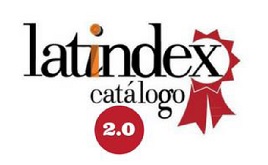El Polvorin. The winding path of provincial struggles in the 90’s
Abstract
The objective of this article is to describe and analyze the cycle of protests in the interior of the country during the '90s, which culminated in the conflictive process of December 2001 and represented a milestone in the political, economic, social and cultural aspects of Argentina. This process started with the return of democracy in 1983, which put an end to convertibility.
The text is organized as follows: first, we present a chronological reconstruction of the protests, which is not intended to be exhaustive, to then conceptualize them on the basis of the contributions made by some authors. Then we focus on the emergence of different methods of protest that are at the core during the decade: outbreaks, popular rebellions and the blocking of roads and streets. Finally, we analyze the structural causes in order to understand the type and specificity of the cycle. The focal point is the combination of spontaneity and organization, the classic union matrix and the irruption of other actors, as well as the “novel” forms of action and the “traditional” ones.
Downloads
Downloads
Published
How to Cite
Issue
Section
License
Copyright (c) 2022 Alejo Mayor

This work is licensed under a Creative Commons Attribution-NonCommercial-ShareAlike 4.0 International License.
Los autores de los artículos publicados conservan los derechos de autor y garantizan a la revista el derecho a ser la primera publicación. Los autores podrán adoptar otros acuerdos de licencia no exclusiva de distribución de la versión de la obra publicada (p. ej.: depositarla en un repositorio institucional o en sus sitios personales) siempre que se indique la publicación inicial en esta revista.
Los artículos se publican bajo la licencia de Creative Commons Reconocimiento-NoComercial-CompartirIgual 4.0 Internacional, mediante la cual se permite copiar, reproducir, distribuir, comunicar públicamente la obra y generar obras derivadas, siempre y cuando se cite y reconozca al autor original. No se permite utilizar la obra ni sus posibles obras derivadas con fines comerciales.
ACLARACIÓN: En números anteriores al año 2017 se utilizó la licencia Creative Commons BY-NC-ND para la publicación de los artículos.







